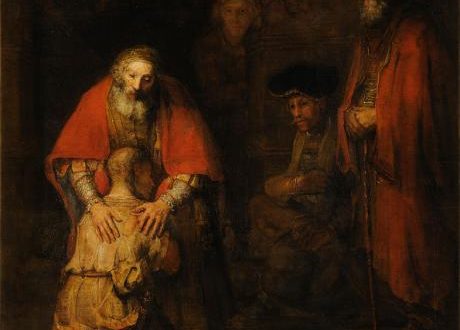The Profitable Wilderness
Leadership is broken because leaders are unbroken
Wilderness Wanderings Series:
Learning to Live the Zigzag Life
What would it be like to be left out of your own family? To be unvalued and know it because you are not invited to major family events. You are sent on menial errands to help other family members who then tell you to “shut up” and not make any problems.
How painful can it get? Do you think you could grow to be a leader coming out of that kind of rejection? Of course you can, but what kind of a leader would you be?
Man’s Look, God’s Look
It depends on who’s making a leader out of you. Many might look at how your family treats you and move on, but what if God decides to make you into a leader? After all, it was God who said, “Man looks on the outward appearance, but God looks on the heart.” What if, despite your family’s opinion of you and the way they disrespected you, you had the kind of heart God valued? Then your name would be David, and you would be on your way to becoming one of God’s greatest leaders.
Those words—man looks on the outward appearance, but God looks on the heart—were said by God to Samuel the prophet the day He sent him to the house of Jesse in Bethlehem to anoint a new king for Israel. Saul, the king of chaos, was failing and falling apart. God wanted a new leader for His people, and He had His eye on one whose heart stirred His own heart.
David was the left out, undervalued, eighth son of Jesse, the one who was keeping the sheep, while the other sons all gathered for a special feast with the leader of their country. They never even thought of inviting David to come to the festivities, let alone believed that he would be the next king of Israel. But their estimate of David did not concern God in the least; He didn’t care what they saw in David because He knew what He saw in David. All his family saw was a kid. They looked on the outward appearance, not all that great for a teenager, but God saw His heart, really significant for a youth in his teens.
Yet, even though David, the unvalued son, was valued by God and anointed to be the next king of Israel, it would be nearly two decades before he would ascend to the throne and become the ruler of the land. David had much to learn about himself and God.
He had to grow in trusting God and earning the trust of others, as well as in following God and leading the strong leaders he needed to rule. And the only way he could learn what he had to know was in the wilderness, literally and actually in the wilderness: living in caves, branded an outlaw, running from Saul, fighting battles, learning to lead, gathering the beginnings of a government and an army around him. And through all of this, patiently waiting on God and so prove he was worthy of God’s trust in him. This is the kind of wilderness you must pursue if you have a passion to lead no matter what those around you may feel about you.
Anointed and on the Run
David spent well over a decade in and out of the wilderness from his late teens until his early thirties while King Saul pursued him. At one point, when Saul was struggling with severe mood changes and music calmed him, David was brought into Saul’s court where he became a calming influence on him. However, after David’s triumph over Goliath and the praise he received for his courage, praise that elevated him above Saul, the king became insanely jealous and began to threaten David so he had to flee for his life. It was then that David became an outlaw on the run, moving from town to town and living in caves in the wilderness.
One time, when David was running for his life as Saul pursued him, he was hiding in the back of a cave Saul entered. David crept up, and cut off a part of his robe. Once he was out of danger, David called out to Saul to show him that he could have killed the king if he wanted to, but David was a man of honor who submitted himself to God’s anointed ruler and refused even to touch him, let alone harm him. Another time David had to feign madness among the Philistines to avoid being killed by either Saul or them. He literally lived between a rock and a hard place in the Judean wilderness, even though God’s prophet had anointed him king.
Everything about David’s wilderness stay was unjust. He had done no wrong; he was the most loyal man Saul had in his kingdom who could have overthrown the king at any time during his unnecessary exile. He could have killed the king, and most people would not have held it against him. Yet David trusted God for His will and His timing across the long years of his sojourn and turned his time in the wasteland of God’s will into the bounty of God’s blessing.
You see God sometimes takes us into a wasteland to prepare us for His blessing. Whether it remains a wasteland or becomes a blessing is entirely up to us. Let’s see the profit David made through the lost years of his life.
1. The time in the wilderness brought David closer to God.
David had a heart for God from his youth, but his wilderness season helped him know God better as he spent hours worshipping Him, focused on His greatness in nature and on His faithfulness to protect and deliver David from his enemies. He was in almost constant danger for his life and he could only count on his wits for so much.
Most of the time he was beyond his depth, so he had to depend on God and learn of His faithfulness no matter what the odds were. So David proved God to be true to him and grew into a man who lived by faith in the most uncertain situations.
2. The time in the wilderness revealed what was in David.
Others around Israel knew what was happening and saw David’s loyalty despite Saul’s unjust treatment of him. They knew he was faithful to trust God and watched him become an able leader. They saw the purity of his character as he grew in wisdom and skill, and that earned him the respect he needed to become a national leader.
3. The time in the wilderness taught David patience.
Because David was so committed to trust God, he acted only when God acted. He could have moved on his own, but he was determined not to do anything for himself that God did not direct him to do. Because God took so long, David had to wait patiently for His timing. Through that he learned one of the greatest virtues a leader can have: the patience to wait for the right time by trusting God.
4. The time in the wilderness enabled David to build his future leadership.
Many men, warriors all, were drawn to David in the wilderness. Perhaps they liked the free way of life he offered; perhaps they enjoyed the camaraderie of men and the military lifestyle that was theirs. Clearly they were attracted to David, believed in him, and wanted to serve with him in leadership. Thus David built his future leadership core from those who followed him in the wilderness.
5. The time in the wilderness formed David as a leader.
When he was forced to run for his life, David was a young rising star in Saul’s court. He was surrounded by other leaders and subject to the restrictions that serving in another man’s entourage would put on him. Once he entered his wilderness wandering, running from safe place to safe place, living by his wits and trusting God, the weight of responsibility rested on him, and he had to lead or lose his life and his followers.
Life in hard places brought the leadership God had put in David out of him as he learned to lead in the most difficult places possible. He would never have become the leader he was without his time in the desert school of leader formation.
6. The time in the wilderness gave David a national presence
Once again, as in the case of Moses, the out-of-the-way place became the place of prominence and promotion.
Perhaps it was because there were so few players on the desert stage, but the whole nation watched the way things played out between Saul and David and recognized the killer of giants as a giant among men. No one had more loyal support from his followers than David, undoubtedly because he demonstrated such loyal commitment to Saul because of his trust in God. It’s amazing what people see in us when we think we are completely unseen.
So if you’re the left-out member of your family, tend to your heart. Do not resent your family position or become angry when they reject you. Instead become a man or woman after God’s own heart. Humble yourself to serve those who disrespect you and humble yourself before God to serve Him. Be a worshipper of God. Don’t try to look good before men. Seek to know God and turn your seasons of rejection into times of profit by learning what God wants you to learn and demonstrate to others that they can trust you because you are trusting Him.
Make your wilderness a profitable wilderness and God will give you His return on your investment.
From "The Profitable Wilderness" on www.leaderformation.org/blog
 About: The Broken Leadership Blog is about changing the leadership conversation from what we are doing with our hands to what God is doing through our hearts.
About: The Broken Leadership Blog is about changing the leadership conversation from what we are doing with our hands to what God is doing through our hearts.




